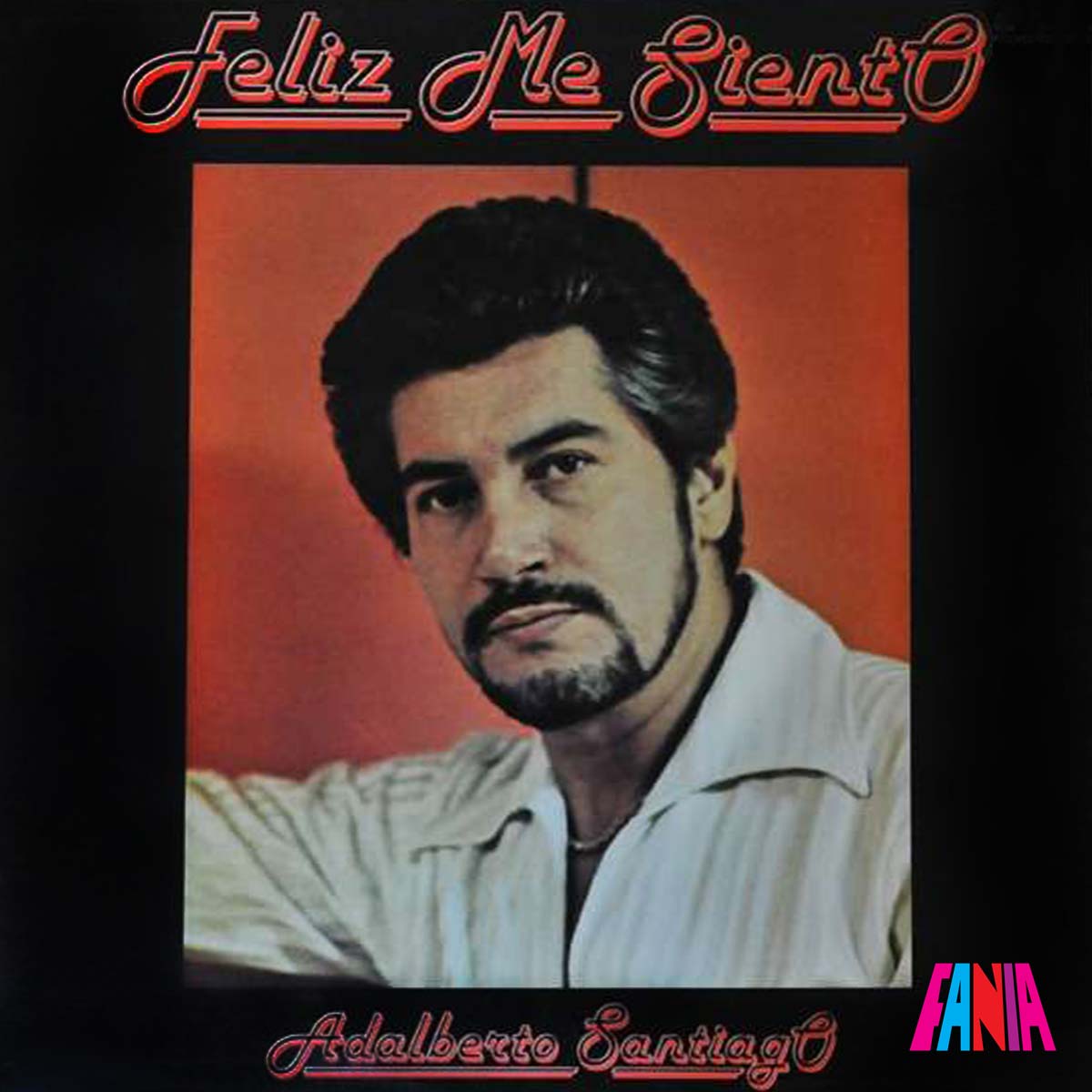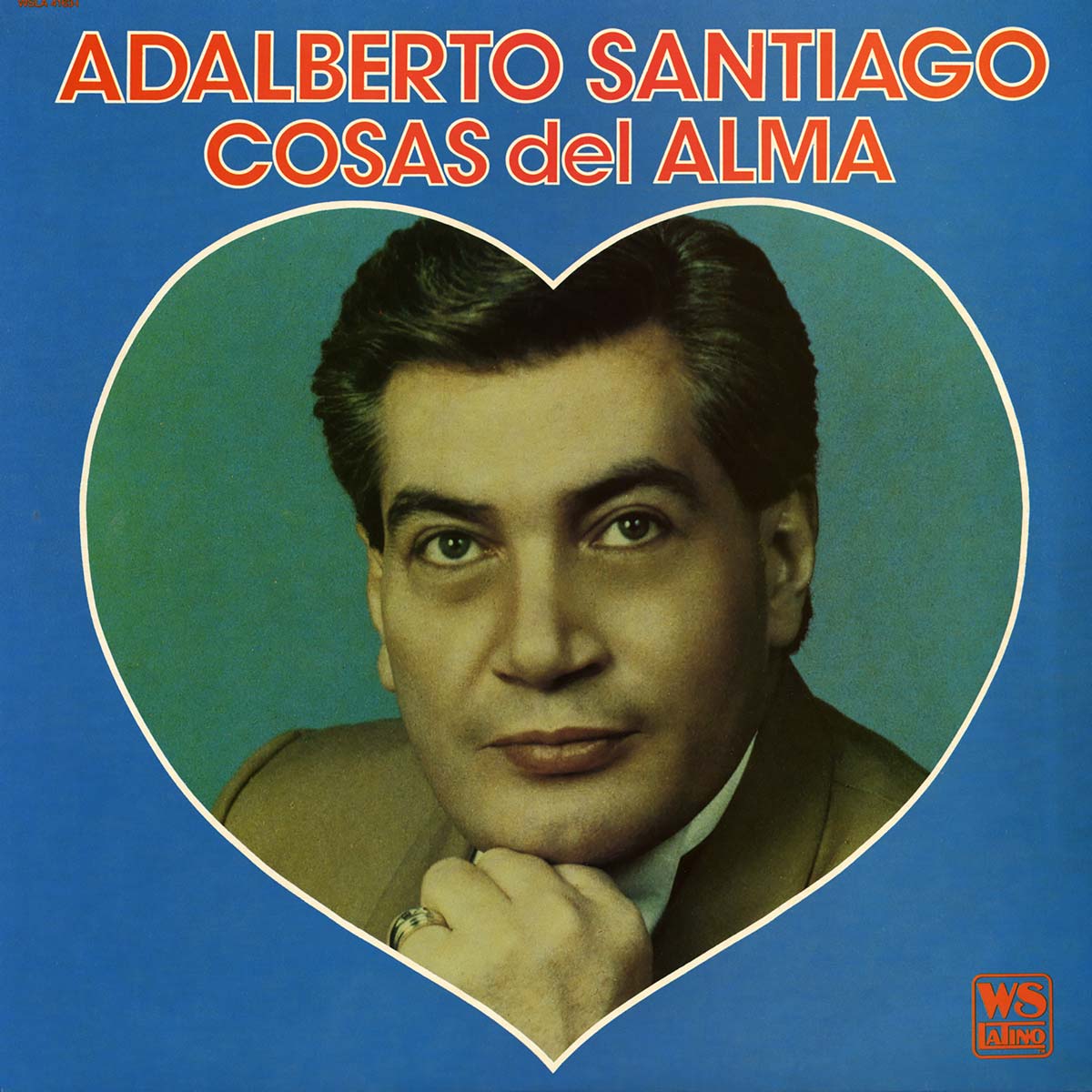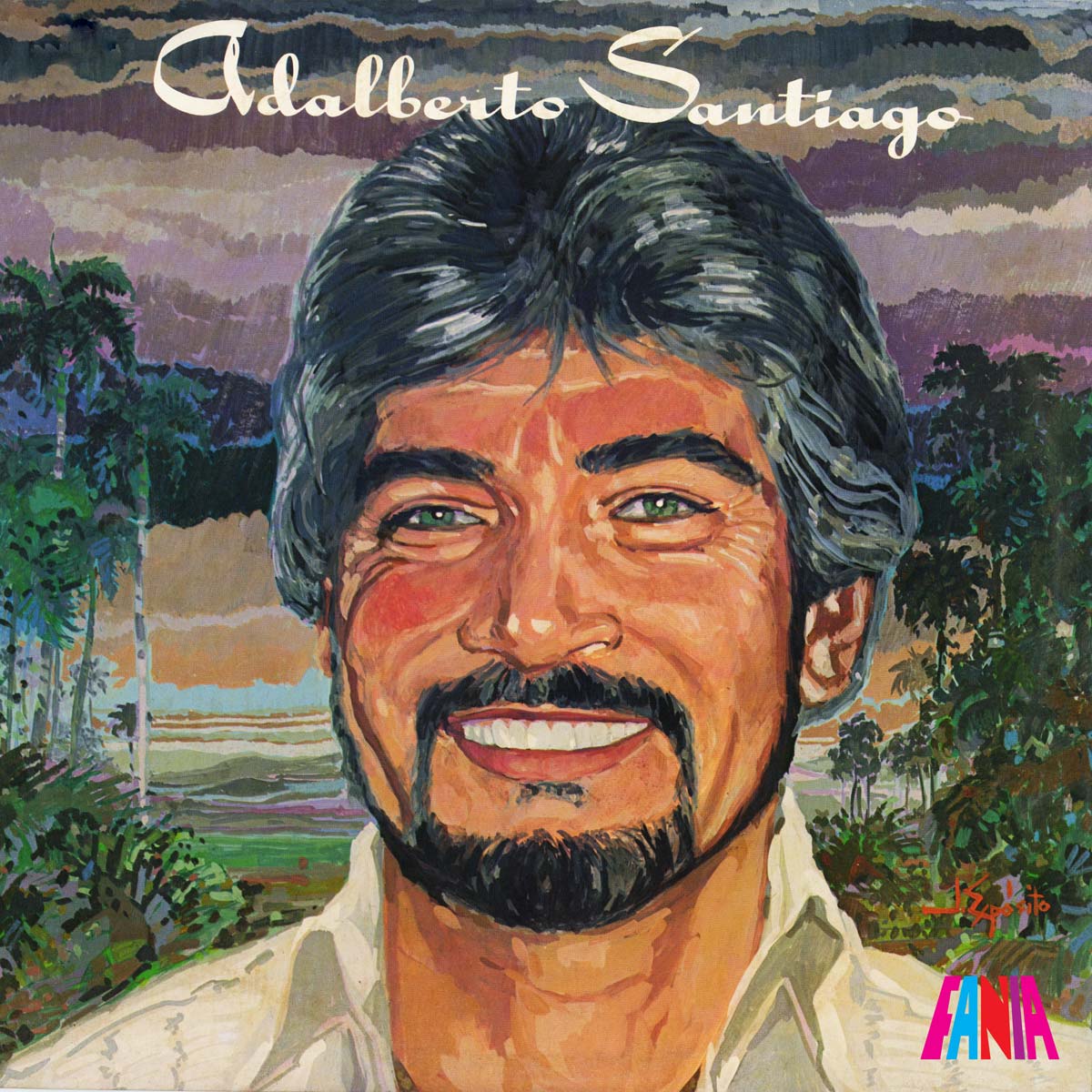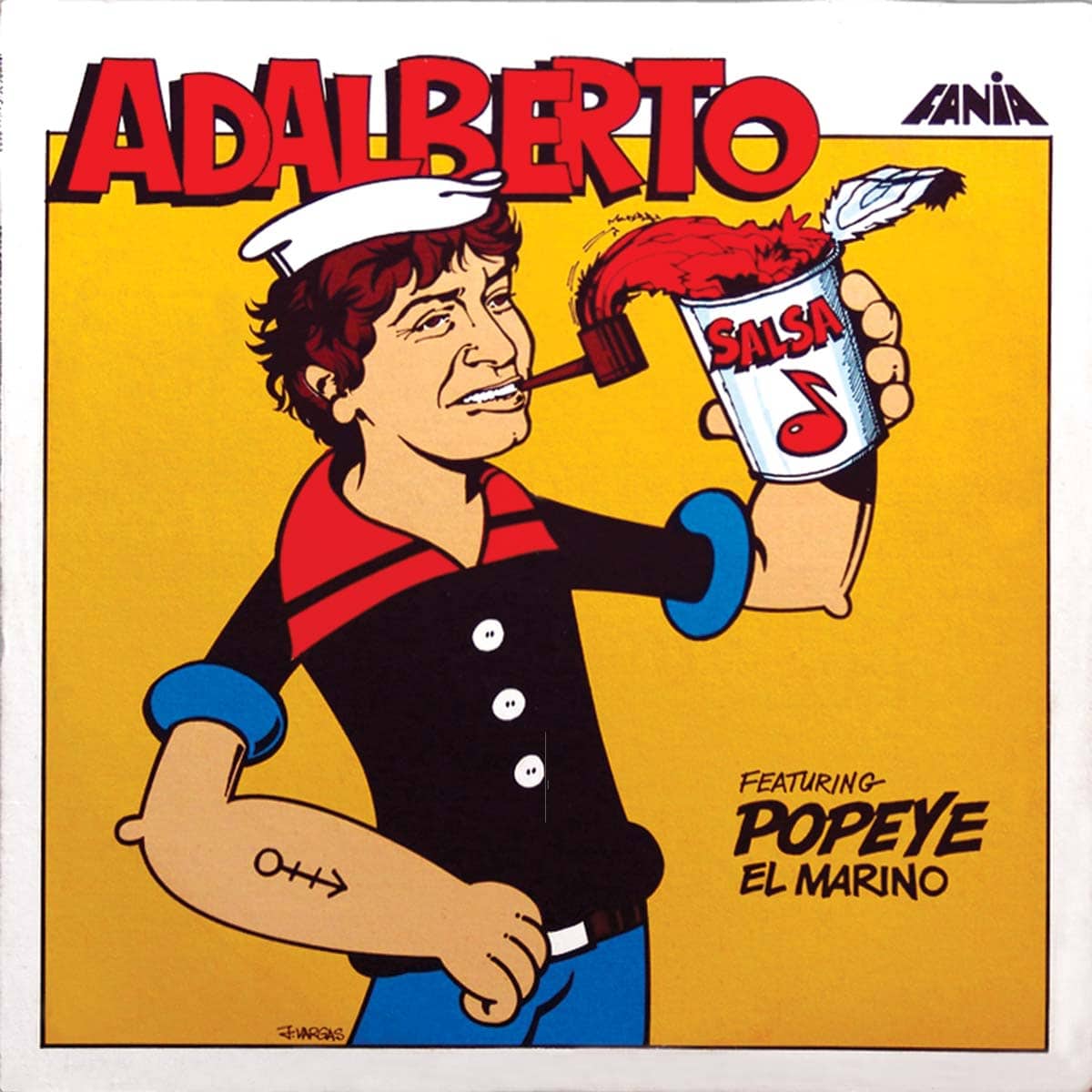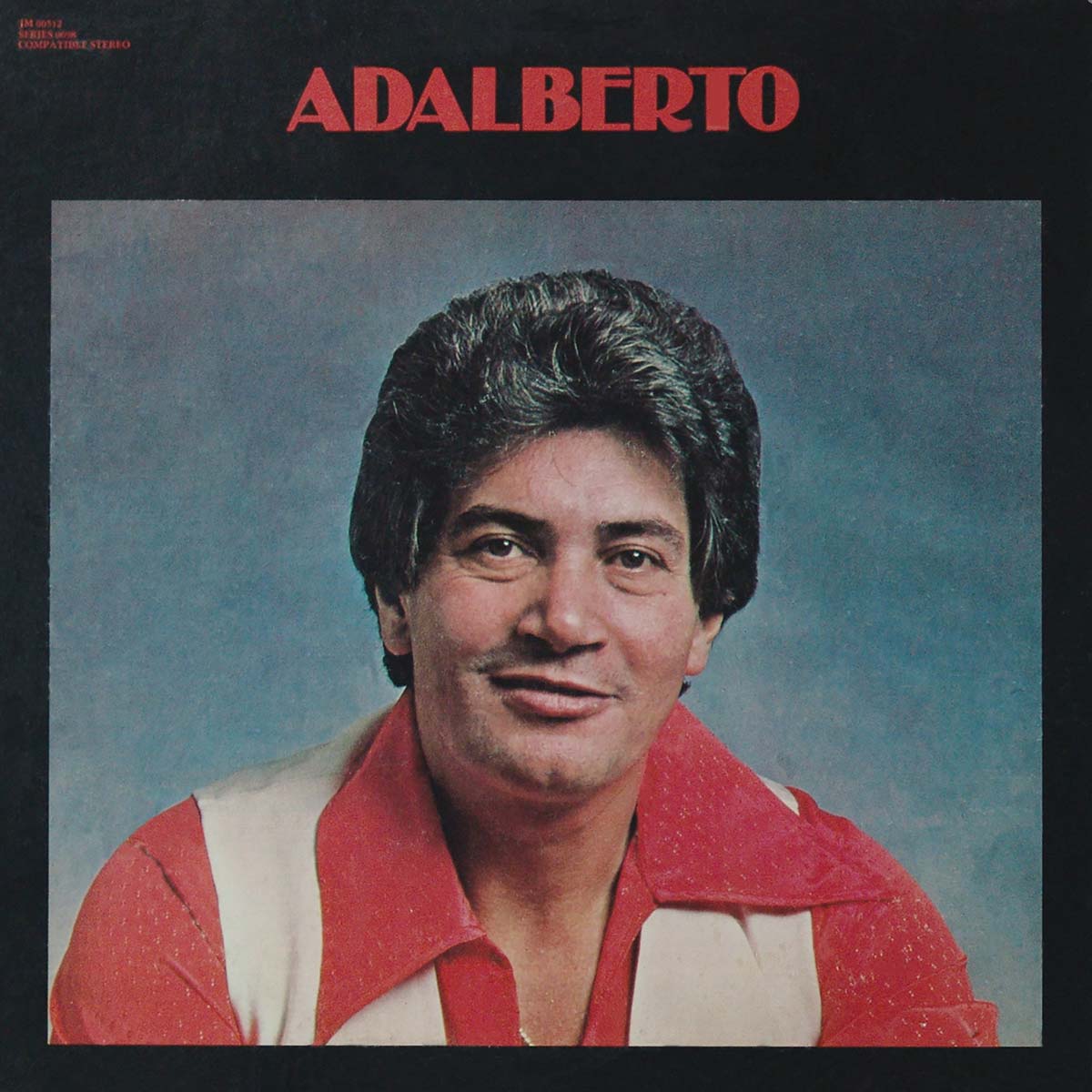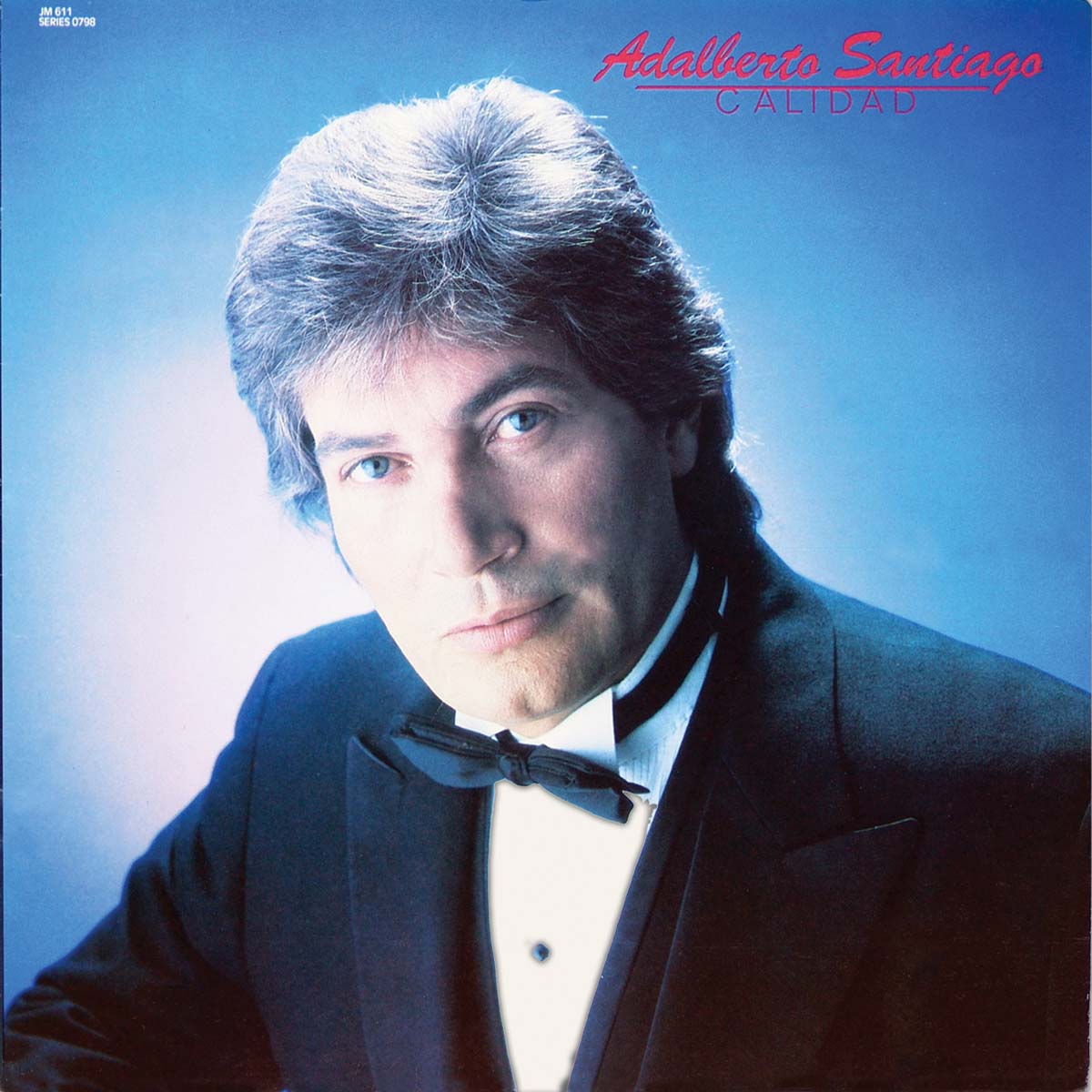
From the first few bars of this recording, you will know that high quality “Calidad” salsa is coming. Indeed, Adalberto Santiago remembers that quality was in his mind when he was preparing this 1982 recording. This was my final outing for the Fania records and I wanted to leave by producing an album that had ‘calidad’ [quality], from the choice of composers, arrangers, musicians, to even the cover of the LP. Now that is finally being properly re-mastered it should be renamed ‘Alta Calidad’ [high quality]. This is one of the best solo records of my musical career. Adalberto Santiago Berrios began his professional career in New York as lead singer of Ray Barretto’s band and Típica 73, arguably two of the most prominent salsa bands during the 1970’s. Santiagos’ flawless lead vocals was one the reasons why the albums by these two bands became instant classics of the genre. I
n 1978, after recording two albums with Los Kimbos, Santiago decided to leave the group and pursue a solo career. He went on to collaborate again with Barretto, and produced three solo albums before saying farewell to Fania with “Calidad.” The musicians in “Calidad” were some of the best session musicians residing in Puerto Rico. Musical director/producer Papo Lucca combined the impeccable rhythm section of his Sonora Ponceña with the baritone sax player of Bobby Valentín’s band, Alfredo Falú. The horn combination of sax, trombone, and trumpet provides a full and thick sound similar to a Latin big band. Santiago then asked for help from some of the best arrangers of the genre, such as Ray Santos, Sonny Bravo, and Oscar Hernández. “Debut Y Despedida” was a salsa hit with some interesting samba-rhythmic horn vamps at the start. The lyrics are about a singer that finds the love of his life in the audience. “Sácale Punta” is about the feelings of debt after treason. “Si Tú No, La Otra” is about jealousy and is an excellent salsa remake of the merengue hit by Luis Kalaff. This was the song that Adalberto and his band played while appearing in the 1984 movie Moscow on the Hudson (with Robin Williams and María Conchita Alonso).
It is the perfect vehicle for Santiago’s quick, on-target vocal improvisations. “Medley Volver” is actually a medley of five boleros, where “Volver,” a song made famous by Carlos Gardel and the title of a recent movie by Almodóvar, is only the first one. The other four boleros are “No Sé” (Ramón Martínez Bauzá,) “Usted No Lo Sabe” (José Dolores Quiñones,) “Obsesión” (Pedro Flores,) and “No Serás De Mí” (Grecia Domech.) Not all good salsa singers (soneros) are equally good at singing boleros. Santiago is, however, one of the best interpreters of bolero among the Fania singers. Santiago got his education for vocal hamonization and his melodic timbre at a very early age by playing guitar and singing for local trios in Puerto Rico. “Píntame Un Son” is a traditional son montuno with an interesting theme about the relationship between music and painting. It features a solo flute by Jesús Caunedo, a highly regarded Cuban horn player who resided in Puerto Rico, and a striking piano solo by the one and only Papo Lucca. “Te Dan De Lao” is a song with a very catchy coro, about the reality of being pushed aside (Te dan de lao) by even your friends when you have no money. It features a solo by trumpeter Juancito Torres. The album finishes with the fast and syncopated “Panamá,” a tribute to the music and people of Panama.
“Calidad” is a high point in the discography of Adalberto Santiago, and it stands out among the best salsa albums of the 1980’s. Written by Gregory Goyo Pappas
Credits – Papo Lucca – Piano Juancito Torres – Trumpets Rafy Torres – Trombones Angel L. Hernández – Bongo Johnny Rivero – Conga Jessie Colón – Timbales Jesús Caunedo – Flute Alfredo Falú – Baritone Sax Producer – Papo Lucca, Adalberto Santiago Executive Producer – Jerry Masucci Musical Director – Papo Lucca Arrangements – Miguel Flores (“Debut Y Despedida,”) Emilio Reales (“Sácale Punta,” “Panamá,”) Ray Santos (“Si Tú No, La Otra,”) Sonny Bravo (“Medley: Volver,”) Papo Lucca (“Pa’ El Rincón,”) Oscar Hernández (“Píntame Un Son,” “Te Dan De Lao”) Original Album Photography – Jochy Melero Original Album Design – Ron Levine


